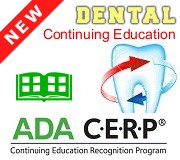| Proper Sterilization Practices in Dentistry |

|
 |
 |
| Sunday, 21 April 2024 14:33 |
|
WASHINGTON - Thousands of dental patients in Oklahoma are anxiously awaiting the results of tests for hepatitis and HIV after health officials revealed an oral surgeon operated his practice under unsanitary conditions. The case came as a shock to many, since contracting such harsh infections is rare during dental treatment.Chevy Chase prosthodontist Youssef Obeid says he was "shocked and upset" by the Oklahoma incident. "Dentists, no matter their specialty or their training, take the matter of infection control very seriously," says Obeid, who adds that dentists in the D.C. region are required to take extra steps to make sure dentists and dental specialists get proper training in preventing infection. Obeid, who also teaches at the University of Maryland Dental School, says every dentist in the state is required to take refresher courses on infection control on a regular basis in order to keep up with the latest federal guidelines set by the Occupational Safety and Health Administration -- or OSHA -- and the Centers for Disease Control and Prevention. There are similar requirements in D.C. In Virginia, continuing education for dentists is mandatory, but there is no specific course on infection control. Obeid says for dental students at Maryland and elsewhere, infection control is second nature. "The good thing is, we do infection control every day so we will be more than happy to show our patients what we are doing, to show them the exact steps and educate them about infection control," he says.He says patients should check a dental office for overall cleanliness when they walk through the door. In the treatment rooms, they should make sure all the instruments are in sealed packages. The instruments should not be opened until the dentist is scrubbed up, wearing surgical gloves and ready to begin. Don't be reluctant in checking out the sterilization process for instruments, Obeid advises. "Regardless of what procedures you are getting, your dentist should be treating this procedure as the most complicated surgery," Obeid says. Here are some things you can look for the next time you visit the dentist: Make sure the dentist scrubs up with antibacterial soap and water. The dental assistants should do the same. The dentist should wear a new pair of gloves immediately after scrubbing. The dentist should open packages of sterile instruments right before your eyes. Sterilizing instruments is a multi-step process that begins with washing off debris after use. Instruments then go into an ultrasonic cleaner. Finally, they are wrapped and placed in the sterilizer. |






